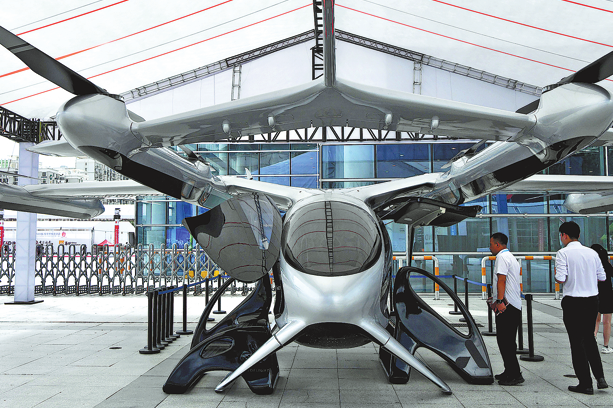Women push boundaries to hit new heights
Their progress has redefined the realm of possibilities in male-centric spaces, as they continue to challenge outdated norms


Besides, more women are joining the ranks of emerging occupations — such as food delivery riders — that were once male-dominated. Amid the hustle of their daily rides, they are redefining their sense of self-worth and reshaping their social roles.
Data show that from 2022 to 2024, the number of female riders in China increased from 517,000 to 701,000, growing 35.6 percent over the two-year period, with women currently making up single-digit percent of its riders nationwide, according to Chinese on-demand delivery platform Meituan.
Over the same period, the total number of riders at Meituan grew from 6.24 million to 7.45 million, with the number of female riders growing at a faster rate than that of men.
In addition, women hold more than 30 percent of the management roles at Meituan's delivery stations, including roles such as station managers, deputy managers and team leaders.
The company noted that while delivery work requires physical strength, it also requires communication, emotional management and organizational skills. Women's strengths in empathy, attention to detail and collaboration, are emerging as a key force driving service quality and professionalism across the sector.
Meantime, data from ride-hailing platform Didi show a sharp rise in the number of female drivers in China, with the number climbing to more than 1.05 million in 2024, up 75 percent from the previous year.
A separate report by ride-hailing platform T3 Go, the 2025 Annual Employment Report on Female Drivers, found a similar trend. By February last year, the platform had more than 70,000 female drivers, up 14 percent over a period of just 10 months. Nearly 60 percent of them spent over eight hours a day driving on the road.
Women's growing presence in these traditionally male-dominated sectors is not only driven by the changing landscape in retail and catering. It also reflects a broader market shift — as platforms move from expanding their labor force in size to improving its quality.
This shift in quality is reflected in improved operational efficiency and a more refined service experience. Since 2017, several food delivery platforms have introduced a "smile initiative", requiring riders to periodically upload smiling selfies. While the move sparked controversy, it also underscored a growing emphasis in the new service economy on emotional labor — the ability to convey warmth and goodwill as part of the service itself, industry insiders said.
Huang Xiaoqin, 39, bought a secondhand electric scooter in 2020 and began working as a food delivery rider in Hangzhou, Zhejiang province. Now, she serves as a mentor for newcomers at her delivery station, offering guidance and reassurance when problems arise.
"If a rider calls to report their bike is broken, I tell them to tie it up first with ropes — and if that doesn't work, just head home and stay safe. I am like a mom to them," she said. For Huang, kindness and empathy often go further than urgency or strict rules in keeping a team steady.
T3 Go's report also shows that female drivers consistently earn higher five-star ratings than men. Passengers most often praise them for their friendly attitude, smooth driving, patience, clean vehicles and calm demeanor.
Jobs such as food delivery riders and ride-hailing drivers constitute part of the gig economy — a new economic form that integrates the digital economy with flexible employment. This economic model has offered women abundant employment opportunities.
The growth of women in the gig economy signals more than just a shift in employment patterns — it reflects China's broader transition toward a higher-quality service sector.
"The 'gig economy' is increasingly emerging as a key driver of the new forms of employment and a new growth engine for promoting the growth of the economy," said Yan Fei, an associate professor at Tsinghua University's School of Social Sciences.
"The most prominent feature of the 'gig economy' is its reliance on internet technology. Its scope of work has expanded significantly, covering physical labor such as food delivery and courier services, creating employment opportunities for more workers," Yan said.
Zhang Chenxu contributed to this story.
zhuwenqian@chinadaily.com.cn
























